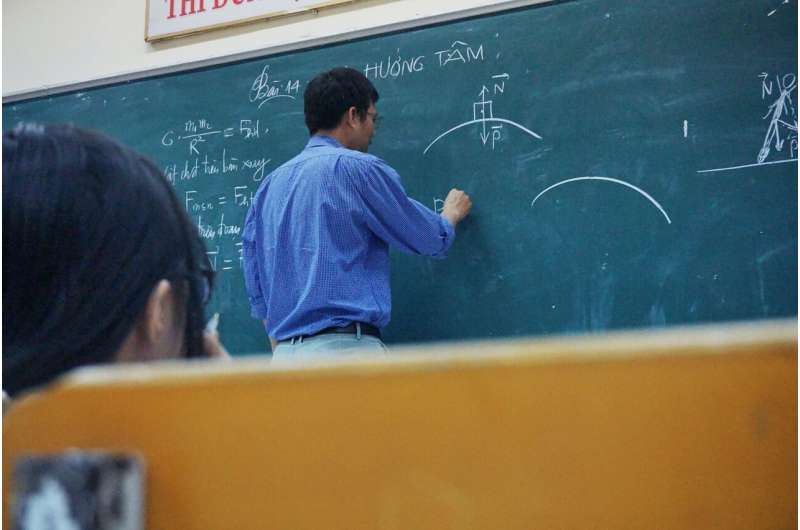
A quartet of scientists, three from Princeton University, the other the College of California, Berkely has uncovered by means of experimentation that tactics for fixing issues develop into more efficient about generations when the individuals involved are capable to choose greater lecturers to guideline them.
In their paper printed in the journal Science, B. Thompson, B. Van Opheusden, T Sumers and T. L. Griffiths explain experiments they performed on-line with paid out volunteers that involved solving a issue and passing on remedies to the future era of volunteers. The paper also discusses what the authors believe that it exhibits about the means by which people go on knowledge. Joseph Henrich with Harvard College has posted a Perspective piece in the same journal difficulty outlining the work by the team in this new effort and hard work.
How human beings have managed to pass on cumulative expertise in excess of successive generations is to some degree of a secret to experts. Though it is regarded that awareness is handed from a single generation to the upcoming, generally with palms-on instruction, it is however not recognised how these kinds of information is retained and improved upon above a lot of generations. As an example, Henrich notes that it took a whole lot of exertion by people today living in Micronesia to master and move on expertise wanted to traverse the Pacific Ocean: Undertaking so included some getting masters who handed on what they experienced realized from individuals who came in advance of them.
In this new hard work, the researchers theorized that this kind of knowledge is handed on by way of a system of selective social understanding. To come across out if they may possibly be on the ideal track, they enlisted the help of 3,450 compensated volunteers who participated in the experiments on the internet.
The experiment consisted of very first asking an original team of volunteers to fix a challenge by acquiring an algorithm to form 6 tiles in the fewest amount of comparisons. Each of the volunteers was then questioned to use the algorithm they located to form 9 tile sextets. As soon as they concluded, each of the volunteers was asked to generate a passage describing how they obtained their success and to document a demonstration of their solution.
The future technology of volunteers was questioned to do the very same undertaking but also experienced the choice of mastering from the very first era of volunteers. In successive generations, volunteers who ended up chosen as academics earned more dollars. Following the to start with era, volunteers have been placed into random teams the place they had been authorized to choose their trainer. Some teams have been permitted to see the payoffs to academics, others could not. The scientists advised looking at these payments was a way for volunteers to decide which people were being the improved teachers.
In hunting at the outcomes of their experiments, the researchers located a pattern: Those people volunteers who were being allowed to choose much better instructors, pretty naturally, did far better on the endeavor than those people with fewer proficient lecturers. And that, the researchers uncovered, resulted in a type of snowball effect, where by learners grew “smarter” in excess of generations due to attaining accessibility to historic know-how around generations.
B. Thompson et al, Elaborate cognitive algorithms preserved by selective social studying in experimental populations, Science (2022). DOI: 10.1126/science.abn0915
Joseph Henrich, Selective cultural procedures deliver adaptive heuristics, Science (2022). DOI: 10.1126/science.abo0713
© 2022 Science X Network
Citation:
Experiments demonstrate productive tactics evolve superior around generations when folks have a alternative of a superior trainer (2022, April 1)
retrieved 7 April 2022
from https://phys.org/information/2022-04-effective-procedures-evolve-people-alternative.html
This doc is topic to copyright. Aside from any good working for the goal of personal research or investigation, no
component may be reproduced without the need of the prepared permission. The material is presented for info functions only.